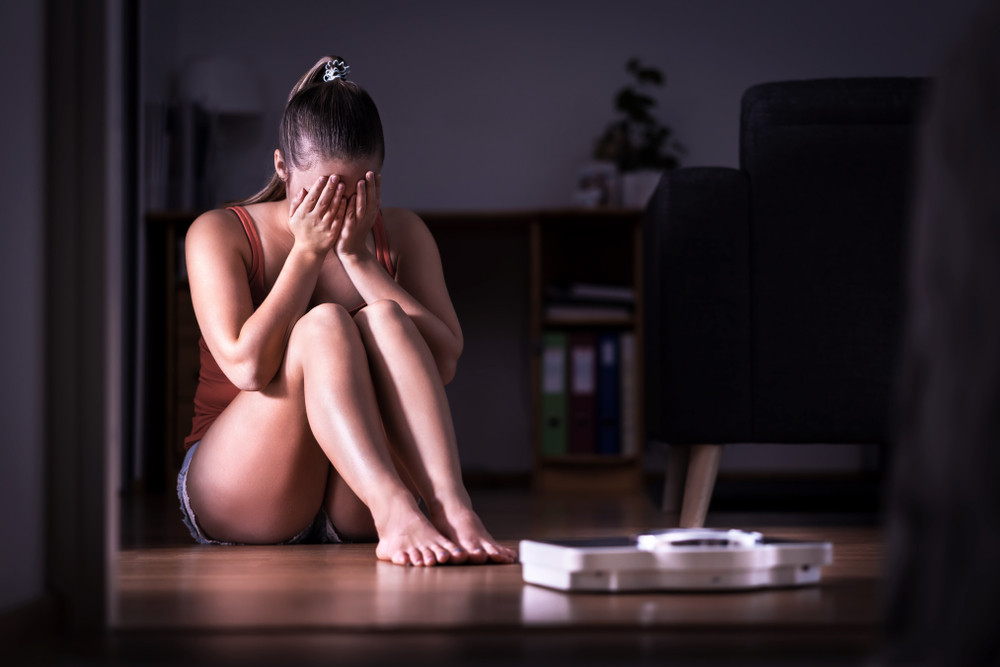Popular Reads
Top Results
Can't find what you're looking for?
View all search resultsPopular Reads
Top Results
Can't find what you're looking for?
View all search resultsBody shaming is more dangerous than you think
If people continuously receive negative comments about their bodies, it will influence their self-esteem and might lead to anxiety or depression.
Change text size
Gift Premium Articles
to Anyone
T
wenty-two-year-old Esther Agustine Mangunsong and 27-year-old Tika Lestari are strangers to one another. They live in two different cities, Jakarta and Yogyakarta, but they have one thing in common; both have been victims of body shaming since elementary school.
Esther was born with a dark skin tone. Tika has a curvy body, curly hair and, like Esther, a dark skin tone. Both of them were bullied for their physical features – which have been deemed unappealing by certain Indonesian beauty standards – making them feel insecure about their own bodies.
“I feel insecure and not worthy to be loved,” Tika told The Jakarta Post, sharing that she once punched a male friend for making fun of her.
“I used to try different skin-care products,” said Esther regarding how she had tried to conceal her “flaws”.
Mirna Marina, 35, who lives in Boyolali, Central Java, has received sexually degrading comments about her body hair.
“Some of my male friends blatantly said that a woman with excessive body hair increased their libidos,” she said, adding that people had also called her a monkey or transgender.
Body shaming is a common issue for women. About 62 percent of Indonesian women said they were victims of body shaming, according to ZAP Beauty Index 2020, research conducted by Indonesian beauty-clinic brand ZAP in collaboration with consulting and marketing research company MarkPlus Inc.
The survey was conducted between July and Sept. 2019 in various cities across Indonesia and involved 6,460 female respondents aged between 13 and 65.
ZAP Beauty Index 2020 found that 47 percent of Indonesian women experienced body shaming because of their curvy figures, 36.4 percent due to their acne-prone skin, 28.1 percent because of chubby cheeks, 23.3 percent because of their dark skin tone and 19.6 percent because they were skinny.
Clinical psychologist Dyah Larasati told the Post that body shaming commonly occurred at a young age, particularly during adolescence, as bodies dramatically changed during this period. Girls start menstruating, gaining extra weight and undergoing physical transformations such as breast development and changes to their skin.
Body shaming happens to both men and women, but Dyah said women were more vulnerable.
“Overweight males with chubby figures and fat bellies also experienced body shaming, but it’s not [as common],” added Dyah.
Read also: By the way: Sisters in sisterhood, but enemies in silence
Dyah said that the way society perceived the role of women was one of the triggers of body shaming.
According to objectification theory, which holds that girls and women are commonly treated as sexual objects, females have been seen as mere companions for decades. To attract males, it has been said, they became obsessed with their physical features and began to compete with one another.
“They are judged not as a whole human but based on separate [features] of their body,” said Dyah.
If people continuously receive negative comments about their bodies, it will influence their self-esteem and might lead to anxiety or depression.
“Basically, body shaming can make people feel insecure about themselves. It can keep going until they’re old,” said Dyah.
Child and family psychologist Anna “Nina” Surti Ariani said that body shaming could even lead to suicide, especially when it happened during adolescence.
“During the teenage years, the emotional part of the brain has fully developed. Meanwhile, the part of the brain that process logical thinking has yet to mature. So it’s easier for them to get emotional,” said Nina.
In some extreme cases, Nina said that the victims may want to undergo plastic surgery. "They can't accept themselves," she said.
To solve this issue, Nina suggested that victims of body shaming find a good support system.
“If [their family or friends] like to make negative comments, it means they may need to find new friends [who are more accepting],” she said.
Nina also recommended that the victims share their experiences of body shaming with others.
Lastly, she encouraged them to be grateful for their situation and focus on their strengths instead. (kes)










